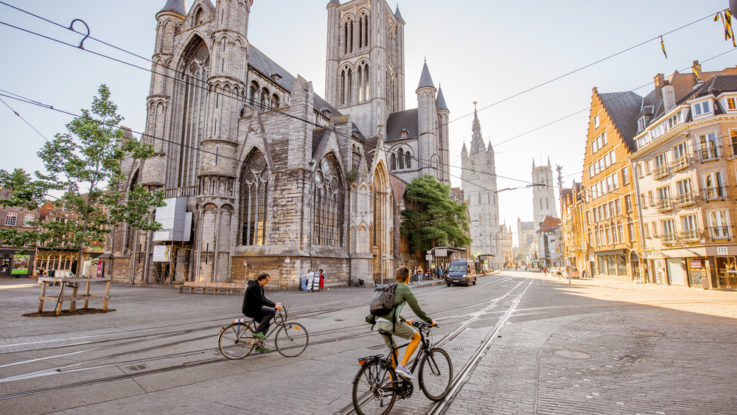
The city of Ghent, Belgium, has added 400 new bicycles to the municipal vehicle fleet. This brings the total number of people who work for the city commuting by bike to 57% – an increase from only 36% six years ago. The bikes include regular bicycles, in addition to cargo bikes and electric bikes.
Recent data from 2021 has shown that 86% of all public sector employees in Ghent used sustainable methods of transportation in – or at least some part of – their commute. In addition to cycling, they also used public transport. The change to sustainable modes of transportation has allowed the city to gradually reduce its standing motor vehicle fleet. Since 2017, authorities have dropped 53 vehicles or 9% of the total. The eventual goal is to reduce that number by 30% by the year 2030.
This switch to sustainable transport usage for city employees ties in with Ghent’s low emission zone laws. In a bid to improve air quality, Ghent’s inner city region was declared a low emission zone, where only vehicles that meet entry requirements are allowed.
Another important facet of Ghent’s approach to public administration cycling is the Bicycle Workshop of the Social Economy Services Company (DBSE). DBSE takes care of the maintenance and repair of both the police’s and the city’s bicycle fleet, which currently totals 4,000 units. The workshop is staffed by citizens from disadvantaged backgrounds, with the city providing professional training and language training, when necessary. Rudy Coddens, Alderman for Social Policy, has stated that many people who have learned the trade at the city workshop have gone on to work with local bicycle dealers.